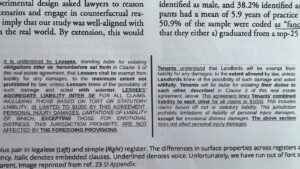I recently heard a webinar by Christin Dallmann and Richard Delaney on translation problems in contract law. I highly recommend these webinars. It reminded me of that old chestnut: do we use ‘shall’ in a contract (when drafting or translating)?
Richard Delaney has now written a guest post on the use of ‘shall’ in Kevin Lossner’s Translation Tribulations blog, https://www.translationtribulations.com/2021/05/richard-delaney-on-shall.html. Kevin writes that this text was originally part of a social media discussion, but I don’t know where that was and didn’t see it. I am not going to argue point-by-point with Richard’s summary, just set out my own.
I think the mandatory verb in a contract can be shall, will or must. It ought to be used exclusively (some English contracts mix shall and will). I do not think the choice of verb form is likely to confuse any reader. The reader will realize that the verb imposes an obligation.
I posted on this on March 1 2013, since when I have surely changed my mind in some ways.
Shall I or shan’t I? Shall, must and the plain language brigade. The comments are interesting though.
Thornton on legislative drafting is relevant too, although it’s about legislation, not contracts.
- I use shall in the imperative or mandatory sense when I translate from the German (as Richard does). I use it even when it is not clear from the German original who the duty is imposed on.
One of the commenters on Kevin’s blog, Stephen Rifkin, writes:
According to the legal experts I have consulted in books and person, “shall” is very simple – legal obligation. A body, personal or legal, can have an obligation. Therefore, it is correct to say: The Tenant shall pay the rent on the 1st of the month but incorrect to say that “The rent shall be paid on the 1st of the month.”
I understand his point, but I would use shall here too, despite the lack of a subject. It does annoy me when German contracts appear to impose duties without indicating who is responsible, but I wonder what the alternative translation would be – varying the verb when the German doesn’t?
One objection to shall I have read recently is that since it is used in a variety of ways, it is more confusing than must for non-native speakers of English who nevertheless have to make do with English translations (rather than Arabic or whatever). That seems possible.
As often mentioned, Bryan Garner is an advocate of avoiding shall altogether (in original English contracts, of course). I think he got this from a movement in Australia and Canada. He lists something like 16 uses of shall, most of them unsatisfactory.
Writers who advocate plain English in law also condemn shall. One argument I’ve read is that if shall is used in different ways within one contract, a court might query whether it has a mandatory meaning at all. I would certain advise against using shall in more than one sense (for example, ‘If the landlord shall…’). Of course, I am not drafting a contract, but always translating a contract where the German version is defined as binding, so I doubt that a messily translated contract would be challenged in court, but you never know.
- Instead of shall, will can be used. If either party will do something, this is a promise by a party to the contract that has a binding effect. Some English contracts I have seen use both will and shall, for example, ‘the insurer will’ and ‘the insured shall’. This mixture is likely to confuse readers and so it is better to use either one or the other consistently when translating into English. Geoffrey Leech, see below, calls it a ‘quasi-imperative’.
- A third possibility is must. �This is perfectly possible and avoids any unclarity. My only objection is that it sounds a bit unnatural to me.
- English grammar books not specifically about legal texts: when I first wrote about the use of shall, will and must for legal translation students, I was also teaching English grammar to a wider group. My understanding of English verb forms – tenses and modals – was based on the second edition of Geoffrey Leech’s book ‘Meaning and the English Verb’. I can’t agree with some writers who describe will and shall as ‘simple future’, because both verbs have a variety of uses and there is no simple future.
I will quote the third edition of Leech on will in contracts.
There is a difference between the will of insistence above and a QUASI-IMPERATIVE will found with second- and third-person subects: You will do as I say. The Duty Officer will report for duty at 0700 hours. This will is a stronger equivalent of must, and expre000sses the will of the originator of the message, rather than of the subject. It also differs from the will of insistence in that it is not strongly stressed. The quasi-imperative will seems to be a special use of the future will of ‘prediction’, the implication being that the speaker or writer has so much authority over the addressee that failure to perform the predicted action is out of the question. Hence it has military and despotic associations.
The verbs shall and will can be used to refer to the future but also as modal verbs (there is some overlap between future and modal uses). There is no ‘simple future’. For example, the German ‘morgen fahre ich nach Hause’ is not translated as ‘I will go home tomorrow’, but usually as ‘I am going home tomorrow’. ‘I will go home tomorrow’ might be said at the moment of decision or as a promise. Without going into more detail, in a contract I have always seen ‘The insurer will…reimburse’ as a promise made in a contract and therefore binding. (But Geoffrey Leech calls it ‘quasi-imperative’, see above).
When giving examples of usage, it is a good idea to stick to the affirmative use, excluding negatives and questions, which only confuse the description.
And on shall:
RULES AND REGULATIONS (with second-person or third-person subjects)
A player who bids incorrectly shall forfeit fifty points {rules of a card game. The hood shall be of scarlet cloth, with a silk lining of the colour of the faculty {rules for academic dress}.
This usage is found only in legal or quasi-legal documents. Here shall could be replaced by must (=’obligation’), or by the ‘quasi-imperative’ will.
- Use of present tense in German contracts.
Something Richard Delaney mentioned in the webinar that I have never commented on but that is a constant problem is that the present tense in German contracts is usually used to mean an obligation, but it can also be a statement of fact.
Bryan A. Garner, Garner’s Dictionary of Legal Usage, 3rd ed. 2011


